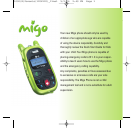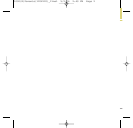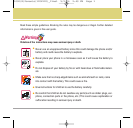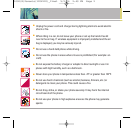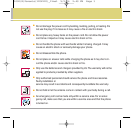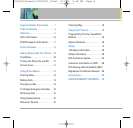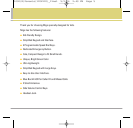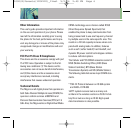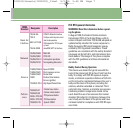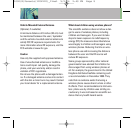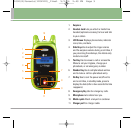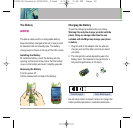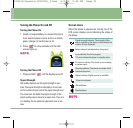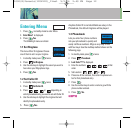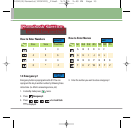
6 Migo
Welcome
Other Information
This user’s guide provides important information
on the use and operation of your phone. Please
read all the information carefully prior to using
the phone for the best performance and to pre-
vent any damage to or misuse of the phone. Any
unapproved changes or modifications will void
your warranty.
FCC Part 15 Class B Compliance
This device and its accessories comply with part
15 of FCC rules. Operation is subject to the fol-
lowing two conditions: (1) This device and its
accessories can not cause harmful interference,
and (2) this device and its accessories must
accept any interference received, including
interference that causes undesired operation.
Technical Details
The Migo is an all digital phone that operates on
both Code Division Multiple Access (CDMA) fre-
quencies: cellular services at 800 MHz and
Personal Communication Services (PCS) at 1.9
GHz. Also, the Migo works on Digital-Dual Mode.
CDMA technology uses a feature called DSSS
(Direct Sequence Spread Spectrum) that
enables the phone to keep communication from
being crossed and to use one frequency channel
by multiple users in the same specific area. This
results in a 10-fold capacity increase when com-
pared with analog mode. In addition, features
such as soft / softer handoff, hard Handoff, and
dynamic RF power control technologies combine
to reduce call interruptions.
The Cellular and PCS CDMA networks consist of
MSO (Mobile Switching Office), BSC (Base
Station Controller), BTS (Base Station
Transmission System) and MS (Mobile Station).
The following table lists some major CDMA stan-
dards.
*
TSB-74: Protocol between an IS-95A system
and ANSI J-STD-008
1xRTT system receives twice as many sub-
scribers in the wireless section as IS-95. Its bat-
tery life is twice as long as IS-95. High-speed
data transmission is also possible.
1000(E)Parents(120X120)_final 5/2/06 2:49 PM Page 6




